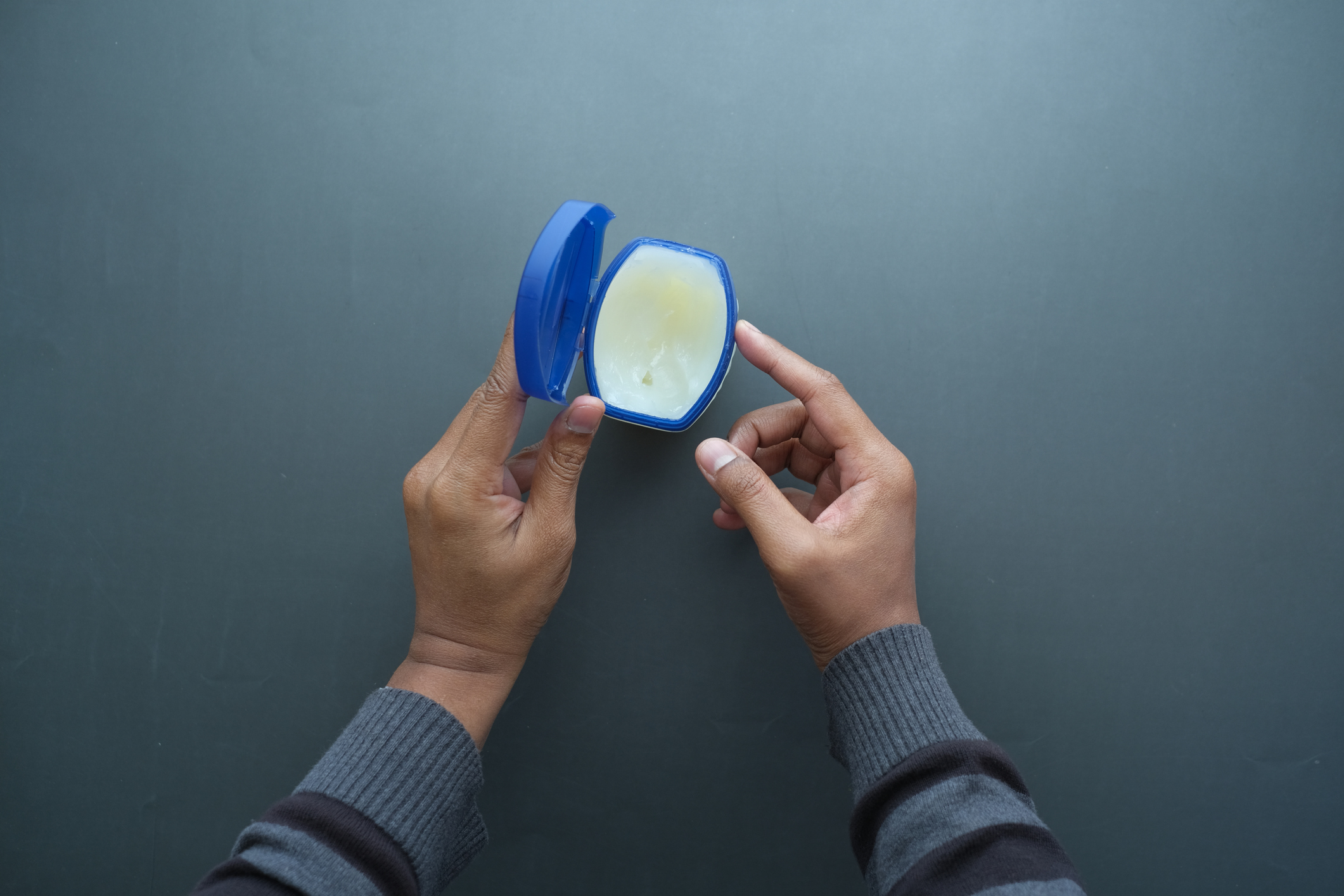When it comes to skin and haircare, there’s a new trend each season that creates a buzz in the world of preventative and anti-aging beauty – “skinfluencers” with dewy, glowing skin use social media to tout the benefits of their regimes and hacks with sometimes suspect results. The latest TikTok skin sensation is “skincare slugging”. The simple nighttime regime of slathering the face with a heavy cream or occlusive ointment may help the skin retain moisture overnight by preventing water loss. But a warning, if you have oily or acne-prone skin – using a petroleum or other occlusive cream can clog pores and lead to more oil buildup.
If you have combination skin, apply a slugging product like Vasoline, Aquaphor Healing Ointment, or CeraVe Healing Ointment only on thin or dry areas. Avoid retinol products or acids that can irritate the skin while slugging and look for a petroleum product with minimal ingredients such as ceramides or hyaluronic acid. If you are using plain petroleum to lock in moisture, use a moisturizer or hydrating serum on clean skin before applying the slugging product.
According to Who, What, Where, petroleum night treatments to lock in moisture aren’t a new skincare concept, but one that has been used in many cultures throughout Vaseline’s 150-year history. Vaseline became an American household staple in the early 1900s used to treat diaper rash, heal cuts, and soothe dry, chapped skin and lips.
Before bed, and after cleansing and moisturizing, apply a small amount( a little goes a long way) of an occlusive barrier jelly or ointment to skin, giving the product about a half hour to sink in before lying down. You may need to pull hair back from the face and put a towel over the pillowcase to protect it from staining. In the morning, wash your face with a gentle cleanser that will emulsify the jelly and remove dead skin cells, oils and bacteria. The process should not be done on skin with any open wound or infection.
Slugging at night can also be helpful for dry, itchy winter skin on legs, elbows, heels, and hands or to protect eczema-prone skin from irritation. Use sparingly at night and give time to sink in before dressing or heading to sleep. For those who want to try slugging but don’t want to use a petroleum-based product, look for a simple balm formulated with plant butter like shea, cacao, or mango, or oils like argan or jojoba.
Turning the heat down at night and taking short warm, not hot, showers can also help reduce dry skin (and noses) when forced heating dries indoor air. Sleeping with a humidifier may also provide some relief.






Add Your Voice
0 Comments
Join the Discussion